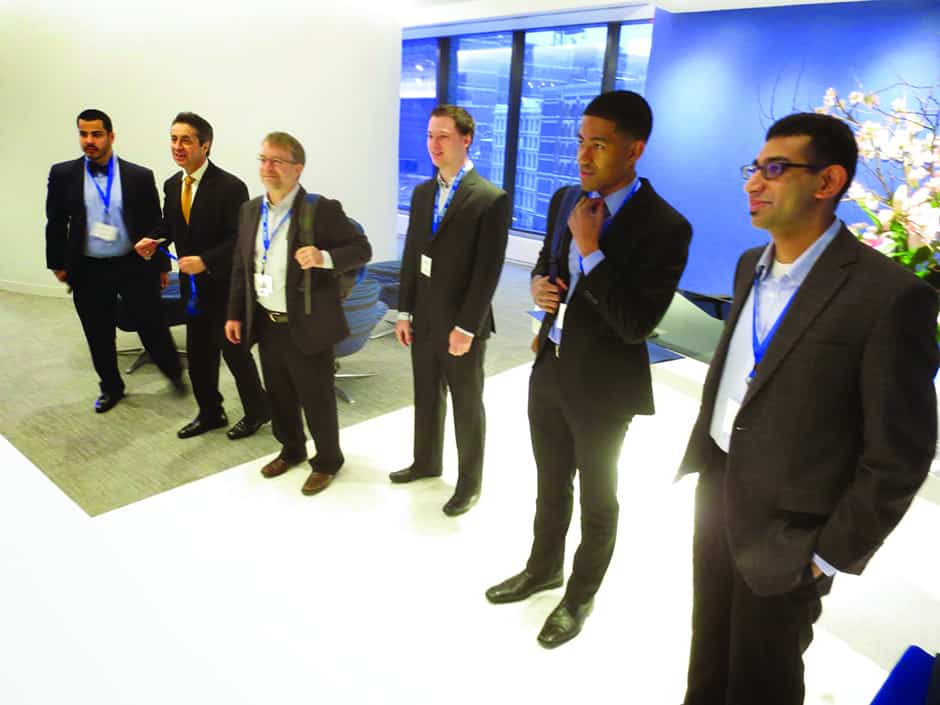“In Ontario, can courts pierce a corporate veil where a corporation has misappropriated funds?” asks the introductory webpage for the International Business Machines Corporation’s (IBM) new legal expert.
In a law firm, questions like these are usually assigned to associates who perform research to help the firm win cases. Recently, University of Toronto undergraduate students have developed a program that can do so much faster than any regular attorney — meet ROSS.
ROSS is a computer program that performs legal research through artificial intelligence.
“ROSS enables lawyers to conduct their legal research faster and more thoroughly than is currently possible,” says Jimoh Ovbiagele, one of the students working on the project. Ovbiagele is a computer science student at U of T. He has been programming since the age of 10 and works full-time in technology consulting while studying part-time at U of T. The team includes four other students as well: Shuai Wang, Akash Venkat, Pargles Dall’Oglio, and Andrew Arruda.
Lawyers can ask ROSS any sort of legal question in natural language and ROSS will try to come up with an answer. Unlike a regular search engine, ROSS is able to derive meaning and knowledge from legal texts and decisions and use that knowledge to answer questions.
ROSS was developed as part of a competition hosted by IBM challenging students to put the company’s artificially intelligent computer system, called Watson, to work. U of T is one of 10 universities invited to participate.
IBM’s Watson is capable of deriving meaning from information stored in regular text and using that information to answer questions posed in natural language. It made headlines in 2011 for winning a game of Jeopardy against former Jeopardy champions.
“Watson is a cognitive technology that processes information more like a human than a computer – by understanding natural language, generating hypotheses based on evidence, and learning as it goes,” reads IBM’s “Smarter Planet” website.
Traditional computers make decisions based on rules and logic, and work best with data that is highly structured. However, the defining bulk of human knowledge in the form of books, articles, and blogs is abstract, unstructured, and often deals in the vernacular. The true meaning of these texts can only be derived based on grammar, context, and culture. Making use of this data requires learning and rationalization, which is what Watson is designed to do.
ROSS, based off the Watson computer system, is fed a body of knowledge in the form of Ontario corporate law decisions and statutes, which it processes and analyses. Right now, ROSS has access to a repository of publicly available legal documents, but may take on more legal content in the future. It processes and learns this body of knowledge to answer legal questions.
ROSS is also capable of monitoring new legal decisions that could have a bearing on a case.
While ROSS is not meant to replace attorneys, these students say that it is sure to leave its mark on the legal profession, greatly improving the way research is done.
“Lawyers fear missing crucial pieces of information in the research process, such as a new court decision that could support or, worse, hurt their client’s case,” says Ovbiagele. “What lawyers receive is fast, thorough, around-the-clock legal intelligence anywhere they are,” he adds.
The students involved in this project will visit New York City this week to pitch IBM for $100,000 and continued access to Watson.
“Me and the team are off to NYC on Thursday to pitch to IBM for seed capital, so we are grinding,” says Ovbiagele.
Correction (January 13, 10:25 am): A previous version of this article incorrectly stated that ROSS’s name was inspired by Mike Ross from the popular TV series Suits.


